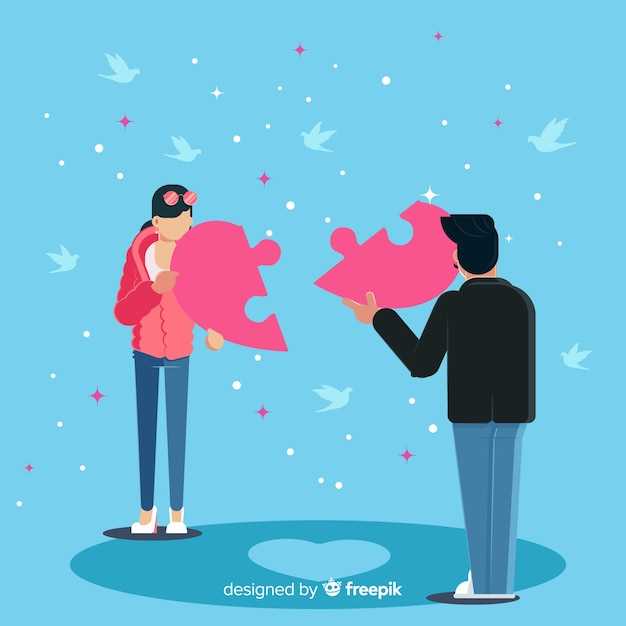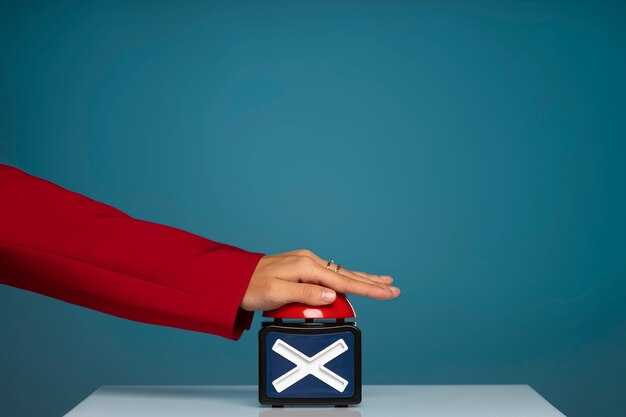One of the major ways childhood trauma undermines the possibility of a healthy adult partnership is by freezing emotional growth. When caregivers threaten a child or respond with neglect, the child only has a limited, immature framework to interpret “Why are they treating me like this? Is it my fault?” and to figure out coping strategies. Some kids respond by emotionally shutting down, which creates obvious difficulties in adult intimacy. Others become desperate to obtain the love they missed, so much so that even with a caring partner they struggle to receive or stay present in the affection offered — there’s an inner void they habitually blame on their partner. In this piece a woman who suspects that nothing her boyfriend does ever feels sufficient writes in for a response; she’ll be called Ariel. Her letter reads: Dear Anna, I’ve been with my boyfriend for almost two years; this is my first romantic relationship. I can’t stop doubting whether we’re right for each other. I’m bewildered because I don’t know if my mood swings and anxiety come from my own past trauma or if they stem from him. I feel our relationship might be codependent. In childhood I experienced emotional neglect — my mother would tell me not to cry and would mock me for crying. She also physically punished me and often used the silent treatment, which led to emotional breakdowns. I was sexually assaulted at a very young age, though I don’t currently notice clear effects from that incident in my adult life. Overall, I never felt safe at home. Now some problems I have with my partner: almost every complaint or request has originated with me — whether it’s trivial, like how he cuts tomatoes, or more serious, like feeling taken for granted. When I ask if there’s anything I can do to make him feel more loved, he usually says it’s fine and that I don’t need to do anything extra, which makes me feel guilty because I look like I’m always dissatisfied. There are days when I desperately want to see him, yet once we meet I find myself irritated and frustrated even though he hasn’t done anything wrong. That may be an anxious attachment pattern. I feel extremely vulnerable when he chooses to prioritize his own interests rather than come see me — I feel betrayed and worry he must not love me as much anymore. From an outside view my reaction might seem overblown, especially since we still spend two to three days a week together; we’re both studying, so free time is limited. I usually arrange most of our meetings, although if I resist asking him to come over, he sometimes takes the initiative. I frequently reproach him for not paying enough attention: he’ll visit and then scroll through TikTok while I want us to spend quality time; he also often falls asleep while we watch movies. He says he can’t help it — his sleep schedule is erratic, which is another thing I criticize. I tried to fix these problems by asking him for more attention, but I realized giving him more attention wouldn’t solve it — it would never seem to be enough. One example of miscommunication: I invited him to celebrate New Year’s with my family. We stayed there several days, but the day before New Year’s he didn’t want to get up. I woke him gently, but he mumbled “let me sleep” and I felt offended and left. I spent the day with my family waiting for him to come out, and he finally emerged in the evening. He didn’t appear clinically depressed — his sleeping through the day wasn’t due to a major mental health crisis. Later that evening in my room I cried and explained how hurt I was that he slept all day instead of being with me on a special occasion. He helped calm me and said he didn’t mean the morning comment; he thought I would be fine without him and found it surprising that someone actually needed him to be around. Does this mean he doesn’t care, or is it his own trauma showing up and something we should work on together? Another big problem is that I often try to change him. At first I believed I was helping him become a better person, but then I realized demanding change is unhealthy. I know that if we’re fundamentally incompatible, breaking up might be the right choice, but I don’t want to let go because there’s no clear reason to end things. I try to communicate my concerns and he always listens and tries to understand. He tells me it’s okay to lecture him about issues and that he’s open to me asking him to change behaviors that affect me, so I thought it might be acceptable to want change if he isn’t opposed. Are we in an unhealthy dynamic? These questions consume me constantly and it’s hard to tell what’s real. I’m very stressed and wonder if this relationship is more harmful than helpful. I’m in therapy and your videos have helped me even more than therapy sometimes. I also started your daily practice to help with anxiety. Sincerely, Ariel. This scenario is familiar. Based on what Ariel says — this being her first relationship and both partners still studying — it’s reasonable to assume she’s in her college years, which helps explain some of the life rhythms described. The label “codependent” gets tossed around a lot; at its core it often means diverting energy away from solving one’s own problems and instead trying to change someone else to feel okay. That pattern does seem present here: trying to make the partner into the source of emotional safety so the person doesn’t have to regulate themselves. The dynamic includes anxious attachment — the sense that nothing will ever be sufficient, the constant internal narrative that “you’re the reason I feel empty.” That anxious drive can make someone project their need for care onto a partner and expect them to fix what was missing in childhood. The childhood details Ariel shared — being mocked for crying, punished with silence, hit, and sexually assaulted — are forms of emotional abuse and trauma. Those experiences plausibly underlie the present pattern of hypersensitivity and urgent neediness. Many of the partner’s behaviors sound like ordinary difficulties of sharing life with another person, and some might simply reflect youthful habits: irregular sleep, distracted phone use, and not always intuiting when to be more present. When he didn’t wake up on New Year’s, it may have been inconsiderate and poorly communicated, but it doesn’t necessarily signal maliciousness. At the same time, the intensity of Ariel’s reaction — feeling abandoned and betrayed — fits an anxious attachment style interpreting ordinary acts as proof of not being loved. Attachment research describes secure attachment emerging when a child’s needs are reliably met; inconsistent or neglectful caregiving can produce anxious or avoidant patterns. An anxious person’s constant question is “Where is my love? Why haven’t I been given it?” which pairs awkwardly with someone who is emotionally distant or needs more space. That avoidant tendency doesn’t automatically make the partner a bad match — avoidant people can be loving and capable of compromise — but it does mean both people must actively meet each other halfway. From what Ariel describes, her boyfriend seems tolerant and willing to be criticized, and he apologized for the New Year’s episode, which are signs of effort. The main obstacle is that the source of the problem appears to be inside Ariel: the unmet childhood needs that continue to get projected onto current interactions. That means no partner can truly supply what a parent did not; one cannot be re-parented by a romantic partner. Fortunately, having a partner who is willing to try and treat you well is promising, but therapy and self-work are needed to heal the wound rather than expecting the partner to fix it. Practical steps that help: a regular, structured self-practice that includes writing to unload charged thoughts and a calming meditation can reduce reactivity and increase clarity. Putting feelings on paper before bringing them to a conversation often condenses and clarifies what really needs to be said; it prevents turning discussions into diffuse, overwhelming pleas for reassurance. When emotions are less cluttered, communication becomes more specific and easier for a partner to respond to. It’s also important to set reasonable boundaries: it’s okay to ask that phone usage or sleeping patterns not intrude on important shared times, but recognize that occasional lapses happen and may stem from fatigue rather than lack of care. If after honest attempts the partner cannot meet basic needs or refuses respectful compromise, that’s a different decision to make. The daily practice mentioned — a brief, twice-daily routine of expressive writing and a short meditation — functions like emotional hygiene: small, consistent maintenance rather than a one-off fix. Over time it creates space to notice whether the relationship brings connection and growth or persistent distress. Given that Ariel sees her boyfriend only two or three days a week, there’s time for practice and reflection between meetings, which can reveal whether feelings shift when less congested by immediate anxiety. Relationships often fluctuate; progress and setbacks happen, which is why consistent practice matters. In many cases, avoidant partners offer a stabilizing contrast to anxiety, because they aren’t constantly escalating emotional drama; that can be helpful if both people are willing to work toward mutual understanding. The core message is this: much of what Ariel feels likely traces back to real childhood harm, and that wound needs its own care. A partner who treats her kindly and cooperatively provides fertile ground for healing, but the inner work is essential and cannot be outsourced. Keep doing the daily practice, use it to process urges before confronting your partner, and watch whether your perception changes as the emotional charge subsides. If things improve, great; if not, clearer, calmer thinking will help make healthier decisions about the relationship. There are promising signs here — someone who listens and tries — and after what Ariel has endured, experiencing care from a partner would be a valuable and healing thing. Finally, the daily practice is available as a free course that can be learned in less than an hour; it’s an easy place to start and can be used immediately to begin reducing anxiety and increasing clarity about what’s happening in the relationship.



 Ať už jakkoli, soustředění se na změnu vašeho partnera ubližuje vám oběma.">
Ať už jakkoli, soustředění se na změnu vašeho partnera ubližuje vám oběma.">

 Jak poznat, že vás trauma nutí se stáhnout (kompilace 4 videí)">
Jak poznat, že vás trauma nutí se stáhnout (kompilace 4 videí)">
 Vyřešte své PROBLÉMY ve vztazích JEDNOU OTÁZKOU!">
Vyřešte své PROBLÉMY ve vztazích JEDNOU OTÁZKOU!">
 Jak udělat vyhýbavého posedlého (a nejdřív odejít)">
Jak udělat vyhýbavého posedlého (a nejdřív odejít)">
 Nejlepší ochrana před narcisem! TO narcise odradí.">
Nejlepší ochrana před narcisem! TO narcise odradí.">
 ">
">
 How to know when to LEAVE your Relationship">
How to know when to LEAVE your Relationship">
 Attachment Styles and the Pain of Ending Toxic Relationships">
Attachment Styles and the Pain of Ending Toxic Relationships">
 Here’s How You Know It’s Time to Tell Him You’re Into Him">
Here’s How You Know It’s Time to Tell Him You’re Into Him">
 Have you settled for a FALSE version of LOVE?">
Have you settled for a FALSE version of LOVE?">